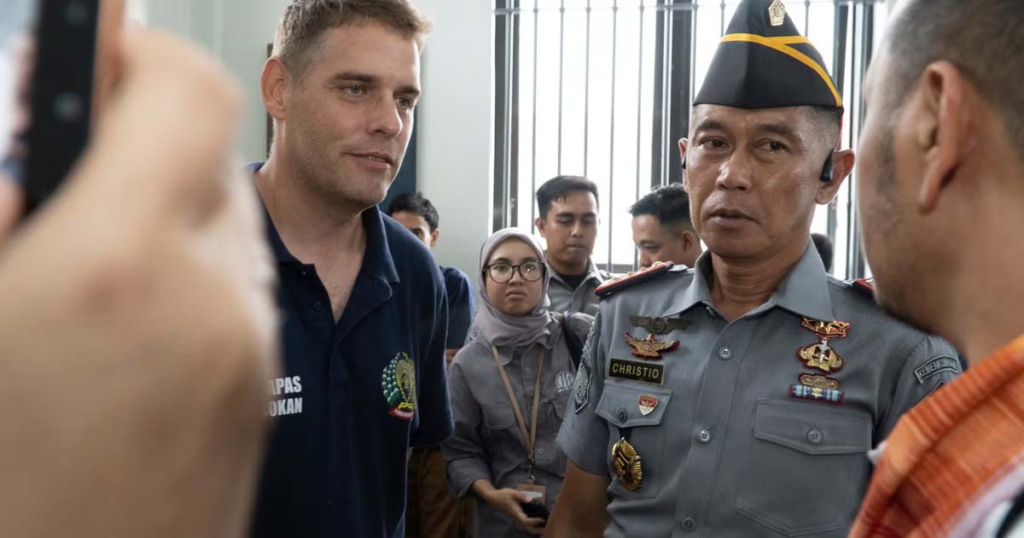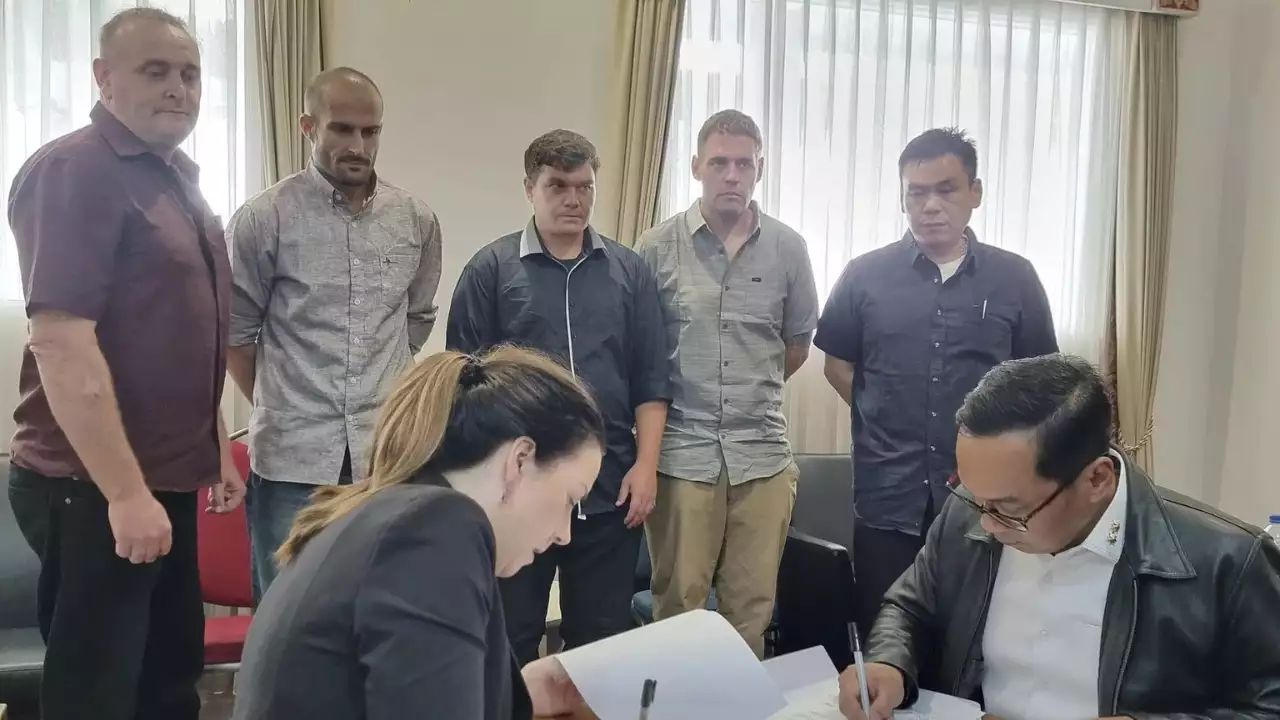In a landmark agreement between Australia and Indonesia, five Heroin Traffickers Return to Australia, their home country after nearly two decades in Indonesian prisons. This move marks the culmination of years of diplomatic negotiations and raises questions about justice, rehabilitation, and international relations.
A Historic Transfer: From Bali to Australia
The five individuals—Matthew Norman, Scott Rush, Martin Stephens, Si Yi Chen, and Michael Czugaj—were members of the infamous “Bali Nine,” a group of Australian heroin traffickers arrested in 2005 on the Indonesian island of Bali.
The gang had attempted to smuggle heroin strapped to their bodies from Indonesia to Australia, leading to harsh sentences under Indonesia’s strict drug laws.
Two of the group’s ringleaders, Andrew Chan and Myuran Sukumaran, were executed by a firing squad in 2015, a decision that caused significant diplomatic tension between Australia and Indonesia.
Another member, Tan Duc Thanh Nguyen, passed away from cancer in prison in 2018. Renae Lawrence, the only woman in the group, was released and returned to Australia in 2018 after serving her sentence.
Read : Mount Lewotobi Laki-Laki Volcano Erupts
The remaining five men had been serving life sentences in Indonesian prisons until the recent agreement enabled their transfer to Australia. Their release on Sunday came as part of a deal signed between Australian Home Affairs Minister Tony Burke and Indonesia’s senior law minister, Yusril Ihza Mahendra.
Read : List of Countries with the Most Bald Men in 2024: Spain top the list
Prime Minister Anthony Albanese thanked Indonesian President Prabowo Subianto for the compassionate consideration shown in this matter, emphasizing the respect Australia holds for Indonesia’s sovereignty and legal processes. The transfer was carried out with high levels of secrecy, and the men arrived in Darwin on a Jetstar flight, where they now remain.
The Path to Freedom: Rehabilitation and Reintegration
Upon their return, the five men were declared free citizens by Prime Minister Albanese, sparking debates about justice and rehabilitation.
While some speculated that they might continue serving their life sentences in Australian prisons, the Australian government clarified that they have been given the opportunity to reintegrate into society as free individuals.
Albanese stated that the Australian government is committed to supporting the men as they embark on their journey of personal rehabilitation and reintegration.

Temporary accommodation, medical care, and other essential services have been made available to them. This approach reflects a broader emphasis on rehabilitation and second chances, aligning with Australia’s policies toward reintegrating former prisoners.
The secrecy surrounding their return underscores the sensitive nature of their release. The negotiations leading to this transfer were conducted discreetly to avoid public and media scrutiny, allowing both governments to finalize the deal smoothly.
The Bali Nine Legacy: A Cautionary Tale
The story of the Bali Nine has become a symbol of the harsh consequences of drug trafficking in Southeast Asia. Indonesia, known for its zero-tolerance policy on drug-related crimes, has long enforced strict penalties, including the death sentence.
The execution of Andrew Chan and Myuran Sukumaran in 2015 brought global attention to Indonesia’s capital punishment laws and strained diplomatic ties with Australia.
The release of the five remaining members of the Bali Nine marks the end of a dark chapter in Australia-Indonesia relations. However, it also serves as a reminder of the risks and consequences associated with drug trafficking.

This case has sparked broader conversations about justice, rehabilitation, and the role of international diplomacy in addressing transnational crimes. For many, the release of these individuals is seen as a step toward reconciliation and understanding between the two nations.
Others argue that it raises questions about the balance between punishment and forgiveness, particularly for crimes as serious as drug trafficking.
The return of the five heroin traffickers to Australia after 20 years in Indonesian prisons represents a significant moment in the history of the Bali Nine case. It highlights the complexities of international law enforcement, the importance of diplomatic negotiations, and the potential for rehabilitation and reintegration.
As these individuals begin their new lives in Australia, their story remains a powerful reminder of the consequences of crime and the potential for redemption. This development underscores the need for continued dialogue and cooperation between nations to address transnational issues such as drug trafficking while respecting legal and humanitarian principles.

